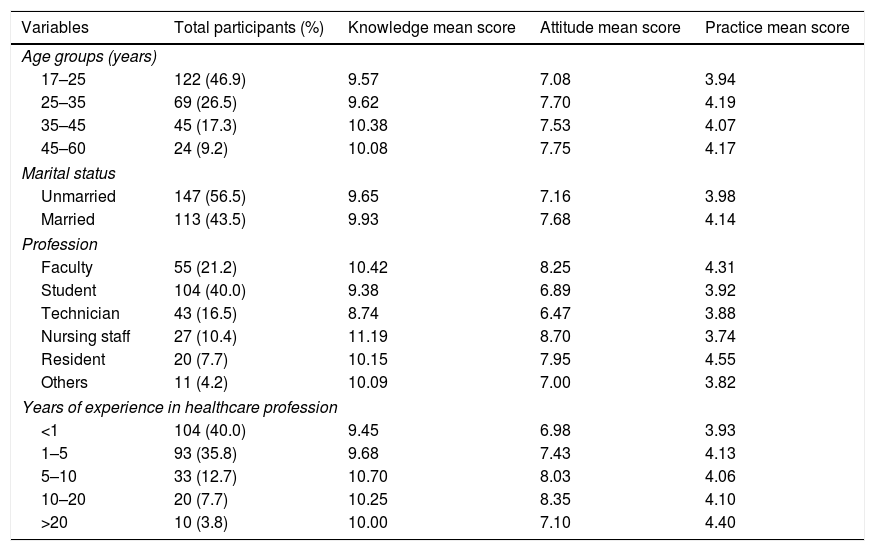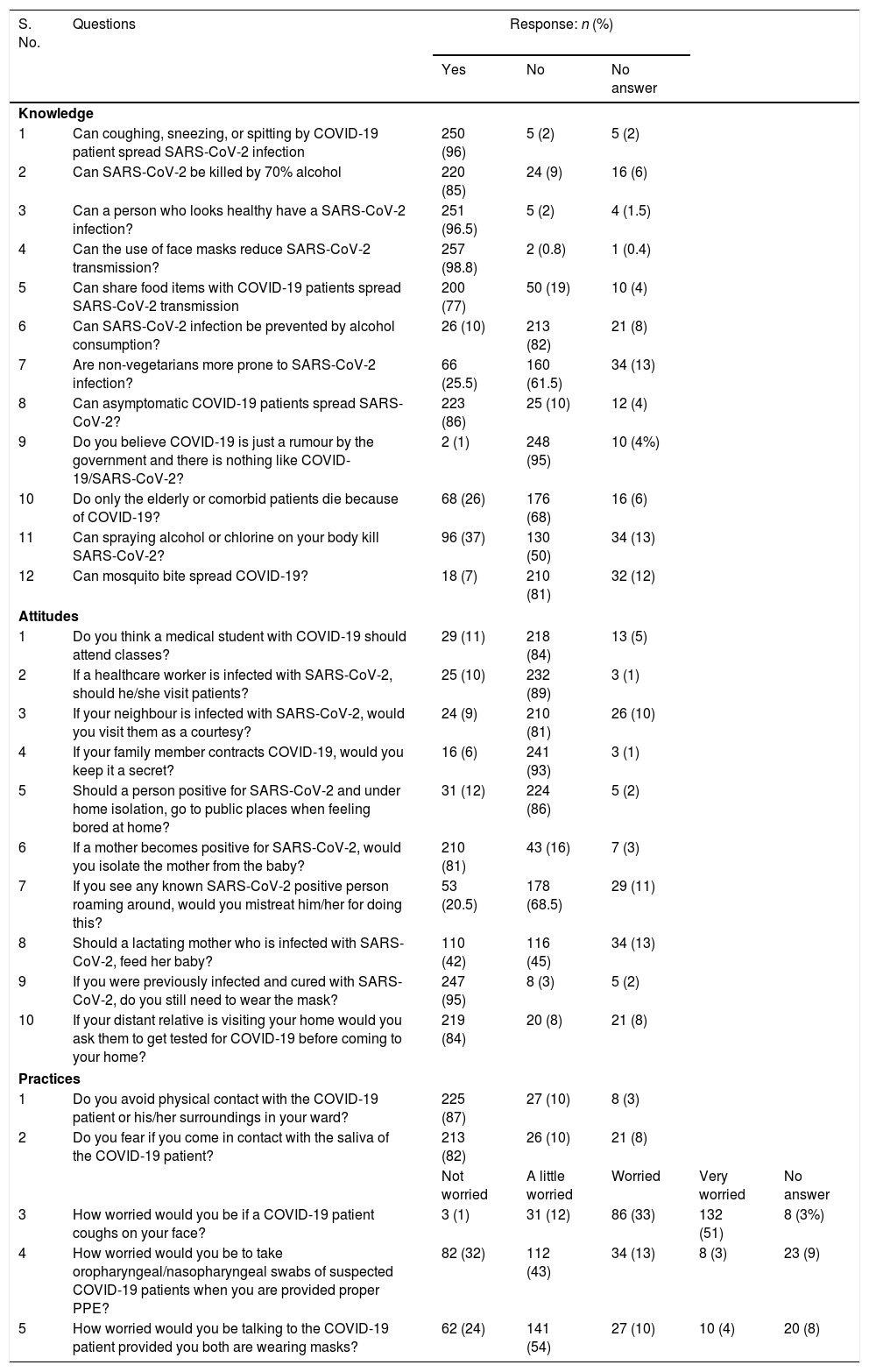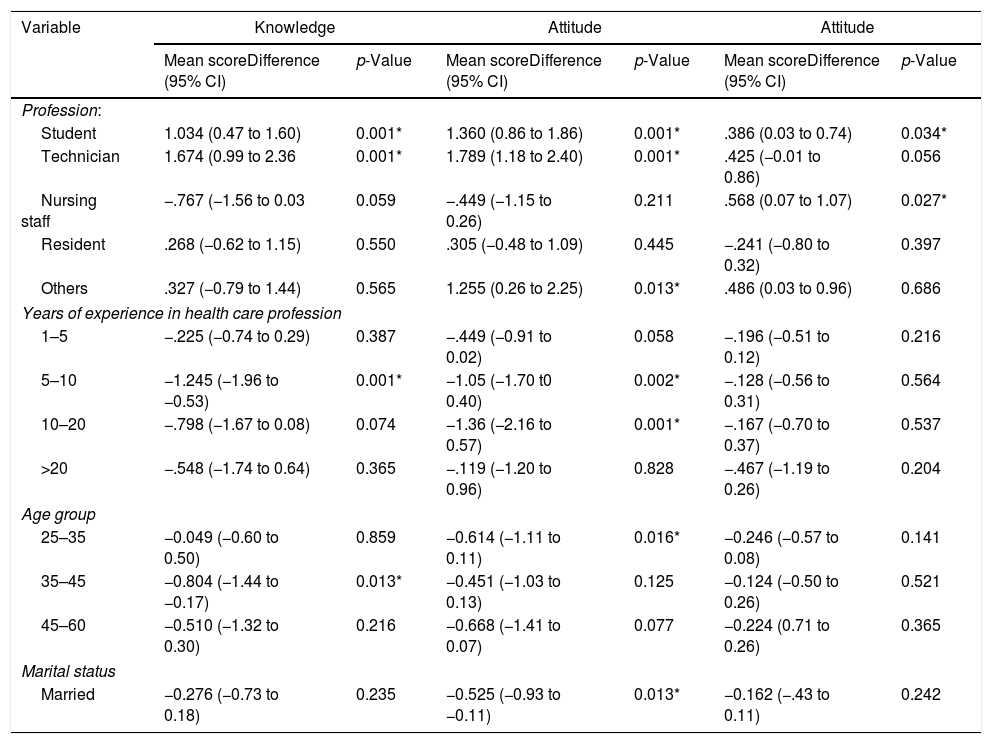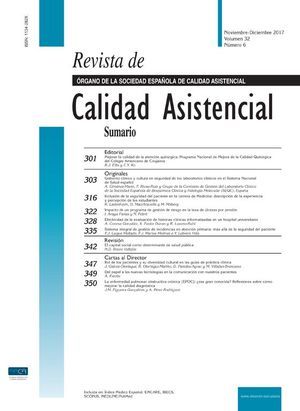Frontline healthcare workers (F-HCWs) are at the forefront of medical care providers against the novel coronavirus 2019 (COVID-19) pandemic which has life-threatening potentials. Inadequate knowledge and incorrect attitudes among HCWs can directly influence practices and lead to delayed diagnosis, poor infection control practices, and spread of disease.
ObjectivesThe aim of this study was to assess the knowledge, attitude and practice (KAP) regarding the COVID-19 pandemic among the frontline healthcare workers (F-HCWs) working at a tertiary care hospital situated in eastern Uttar Pradesh and to identify the factors significantly associated with KAP.
MethodsA cross-sectional study was conducted among 260 health care providers across eastern Uttar Pradesh including Basti city during December 2020. Data was collected using a self-primed pretested questionnaire from the FHCWs working at a tertiary care hospital of eastern Uttar Pradesh. In this survey, a convenience sampling method was adopted. 12 items on knowledge, 10 items on attitude, and 5 items on practices related to COVID-19. The other variables consisted of 4 items on socio-demographic attributes, p-value and 95% confidence intervals (CIs) were performed to assess the attitude and practices in relation to knowledge.
ResultsOf the total 260 study population, 228 were interviewed online, 32 were self-administered. Knowledge and attitude of the nursing staff were highest but practice score was best for residents. Among different age groups knowledge, attitude and practices scores were highest for 35–45, 45–60 and 25–35 age groups respectively. Respondents having 5–10 years of experience had the best knowledge and the attitude score was highest for HCWs having 10–20 years’ experience but the practice score was higher for HCWs having more than 20 years’ work experience. Overall knowledge score of respondents having strong correlation with attitude (p<0.05) and to the practice (p<0.05).
ConclusionIn this survey many F-HCWs reported adequate overall knowledge with a positive attitude and adopted appropriate practices. The F-HCWs with a higher level of education and more years of experience in health care facilities had better KAP towards COVID-19.
Los trabajadores de la salud de primera línea (F-HCW) están a la vanguardia de los proveedores de atención médica contra la pandemia del nuevo coronavirus 2019 (COVID-19), que tiene un potencial mortal. El conocimiento inadecuado y las actitudes incorrectas entre los trabajadores sanitarios pueden influir directamente en las prácticas y llevar a un diagnóstico tardío, prácticas deficientes de control de infecciones y propagación de enfermedades.
ObjetivosEl objetivo de este estudio fue evaluar el conocimiento, la actitud y la práctica (CAP), con respecto a la pandemia de COVID-19 entre los trabajadores de atención médica de primera línea (TS-TS) que trabajan en un hospital de atención terciaria situado en el este de Uttar Pradesh e identificar la factores asociados significativamente con CAP.
MétodosSe realizó un estudio transversal entre 260 proveedores de atención médica en el este de Uttar Pradesh, incluida la ciudad de Basti, durante diciembre de 2020. Los datos se recopilaron utilizando un cuestionario autocebante previamente probado de los trabajadores sanitarios de salud que trabajan en un hospital de atención terciaria del este de Uttar Pradesh. En esta encuesta, se adoptó un método de muestreo por conveniencia. Doce ítems sobre conocimientos, 10 ítems sobre actitud y cinco ítems sobre prácticas relacionadas con COVID-19. Las otras variables consistieron en cuatro ítems sobre atributos sociodemográficos, valor de p e intervalos de confianza (IC) del 95%, que se realizaron para evaluar la actitud y las prácticas en relación con el conocimiento.
ResultadosDel total de 260 habitantes del estudio, 228 fueron entrevistados en línea, 32 fueron autoadministrados. El conocimiento y la actitud del personal de enfermería fueron los más altos, pero la puntuación de la práctica fue la mejor para los residentes. Entre los diferentes grupos de edad, los puntajes de conocimientos, actitudes y prácticas fueron los más altos para los grupos de edad de 35 a 45, 45 a 60 y 25 a 35 años, respectivamente. Los encuestados que tenían entre cinco y 10 años de experiencia tenían el mejor conocimiento y el puntaje de actitud era más alto para los TS que tenían entre 10 y 20 años de experiencia, pero el puntaje de práctica era más alto para los TS que tenían más de 20 años de experiencia laboral. Puntaje de conocimiento general de los encuestados que tiene una fuerte correlación con la actitud (p < 0,05) y con la práctica (p < 0,05).
ConclusiónEn esta encuesta, muchos trabajadores sanitarios F informaron un conocimiento general adecuado con una actitud positiva y adoptaron prácticas apropiadas. Los PS-M con un mayor nivel de educación y más años de experiencia en establecimientos de salud tuvieron mejor CAP hacia COVID-19.











